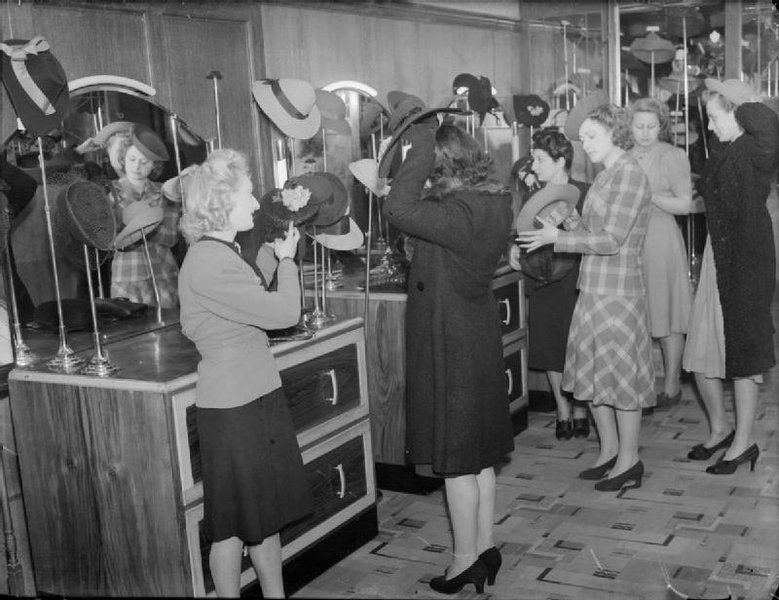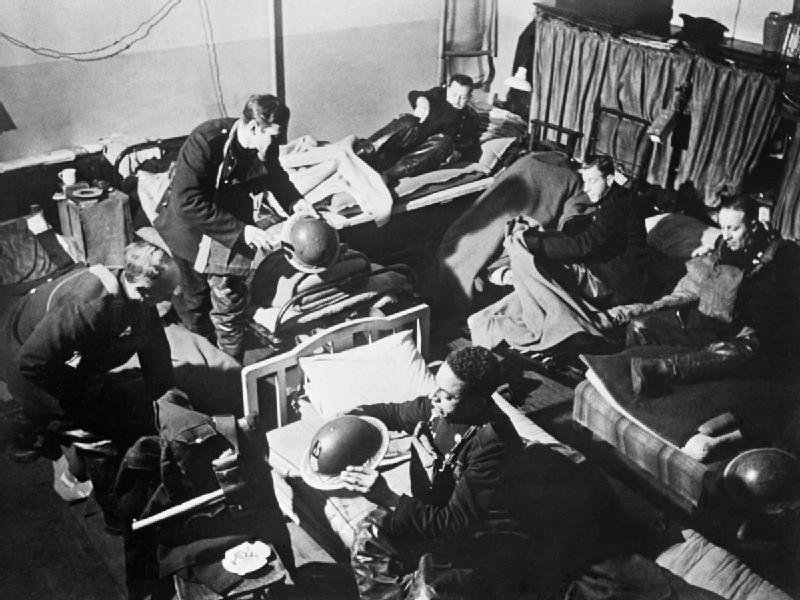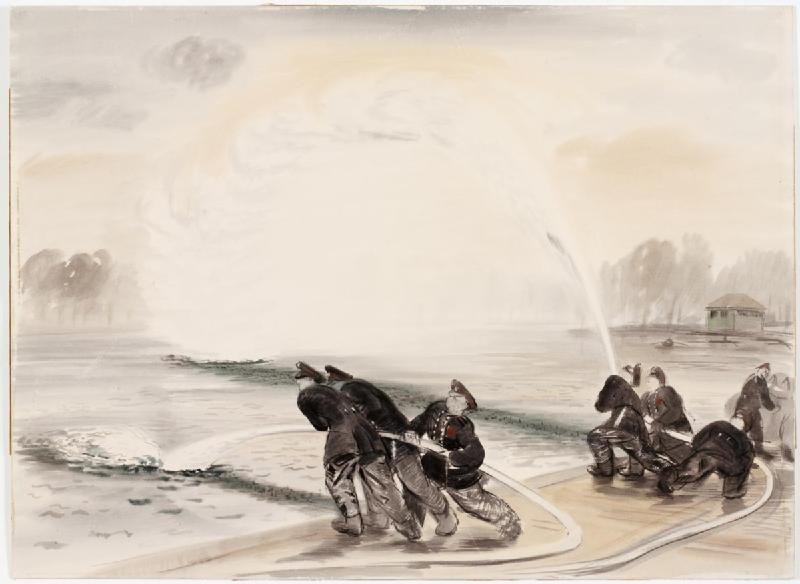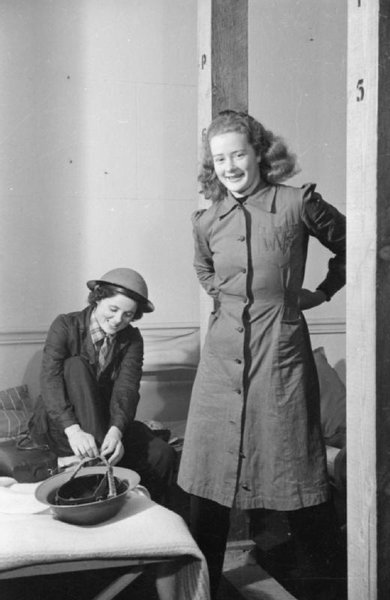High Explosive Bomb at Bonchurch Road
Description
High Explosive Bomb :
Source: Aggregate Night Time Bomb Census 7th October 1940 to 6 June 1941
Fell between Oct. 7, 1940 and June 6, 1941
Present-day address
Bonchurch Road, North Kensington, Royal Borough of Kensington and Chelsea, W10 5SZ, London
Further details
56 20 SW - comment:
Nearby Memories
Read people's stories relating to this area:
Contributed originally by whprice2005 (BBC WW2 People's War)
‘CORNCOB’ MS INNERTON & HMS DESPATCH
IN ‘THE FLOATING’ MULBERRY HARBOUR
by
William Henry Price (Army No 2054978 b24/7/1914)
In 1928 I left school and spent most of my early working life in the music instrument industry. In April 1938 I joined the Territorial Army, whose headquarters were in White City, Shepards Bush. Europe at that time, was uneasy as Germany was preparing for war. In September 1938 the Territorial Army were mobilised in the event of war. A lot of the equipment that was from the 1914-18 war, a lot of this was obsolete, especially in my own unit. The September crisis as it was called, instigated the Prime Minister of the day, Neville Chamberlain, to visit Hitler in Germany. On his return from Germany he claimed Germany would not go to war with Britain, upon a signed agreement. This agreement claimed peace in our time.
During this period my unit, amongst other TA’s were called out in the event of war
Some people didn't believe this as Britain wasn't ready for war. Although it did give us a breathing space, as we knew war would come eventually. We were totally unprepared. As an example, having been called out in the event of war, I spent 3 nights sleeping on a London bus. No one knew where we would be stationed. Eventually we were given a site in North East London, where I spent a further seven days until the September crisis was over. My employer was compelled to release us, for the crisis. I was the only volunteer for the Territorial Army in our company, they were completely unaware of my activity. I was given a hero's welcome on my return. The directors had been in the 1914-18 war and were pleased to know one of their employees had volunteered. In those days I was cycling 30 miles a day back and forth to work. When training two nights a week with the TA, I cycled an extra 5 miles a day from work. I was cycling a total of 190 miles a week.
The following year in 1939 ( a week before the war started) I was called out again, as Britain knew there was going to be a war. For the first 18 months of the war I was stationed in the London area which included the Blitz. I was very fortunate in not having been posted to Dunkirk.
Around 1940 I was moved from West London to the civil service sports ground near Barnes Bridge, at the side of the river Thames. We were able to use the cricket equipment, and whilst playing I received a direct hit by the cricket ball on the leg. It was severe enough to warrant hospital treatment for about three weeks. My first contact with 'friendly fire'! After the first three weeks I was sent to Hammonsmith Hospital for x-rays, the medical officer decided to send me on seven days sick leave, to be followed by light duties, which meant me being sent to NE London. I was the troop clerk and also in charge of stores equipment for six anti aircraft sites, such as petrol etc. Whilst there, the troop Sargent WH Walverton, (from the 1914-18 War), received a letter from the Mayor of Southgate, whereas a local family wanted to adopt a soldier. He turned around to me and said "Here Price, this is ideal for you". Hence, I was able to visit them for a occasional meal, the family were a young couple with a new arrival. I had already been adopted by the local pub the Chaseside Tavern, and had been invited to join the family for Christmas lunch. This was my contribution to the early part of the war as 'light duties'. During the Blitz, crossing through London on my weekly 24 hour leave to Kent from Charring Cross I noticed people sleeping in the tube stations for safety, and many families living on the rail tube underground. These were being used as air raid shelters.
Late 1941 I volunteered for a new unit being formed which where originally the Fourth Battalion Queens. They were being converted to a light anti-aircraft regiment (bofor guns 40mm). After training we were semi mobile, and hence we moved to most parts of the United Kingdom. Twice the regiment was mobilised for overseas service, which never eventuated. We fortunately stayed in the United Kingdom.
In December 1942, I was stationed at West Bay Bridge Port, a message came from headquarters for me only, to be transferred to a gun site on the outskirts of Yeoville. This particular location was the rear of a country pub. One had to walk down the side of the pub to get to the gun site. At the time I was a number 4. My job on the gun was to fire it. I was named 'Trigger Joe', as I was considered quick on the draw. During an air raid an enemy plane was shot down. Hence the local people donated a radio set to the site. It was here one morning, I think it was New Year's eve, strolling along the side of the pub from the gun site, when a young WAAF came by with a bike and a large tea bucket. She approached me, to fill the bucket with beer from the pub. As it was awkward to take the beer back to the WAAF site at the bottom of the hill. I was asked to help with the beer transport, and as a result I found myself invited to join them at the head of their table at the Ballon Barrage site to drink the beer!.
Early 1944 the Colonel, informed me that the regiment had been allocated with a special job on the occasion of the invasion of Europe. In May 1944 my battery was moved to Oban Scotland, each person was issued with a hammock out in the bay with several merchant ships. I was allocated to one merchant ship called the Innerton. Little did we realise, it was to form the outer brake water called the Muberry Harbour. I gather this had been planned in the 1942 conference in Quebec by Churchill and Roosevelt. Towards the end of May 1944 a very large convoy of merchant ships made their way through the Irish Channel and were eventually joined by the American and British war ships of approximately 60 ships. Each of the merchant ships did have a bofor gun attachment on board. At that time we didn't know what was going to happen. As most people know D-Day was put off from the 5th to the 6th of June, and we continued to past the time until the 6th.
The convoy of merchant ships moved off on the afternoon of June 6th known as D-Day. There were approximately 17 merchant ships that started to move into position, known as block ships. They were to form the outer brake water for Mulberry B, this being the British and Canadian sector. The effect was to calm the seas inside their protection. The ship I was on was number seven in line to be sunk. From then on, other parts of the harbour started to arrive including concrete caisson blocks etc. It only took a few days for the harbour to take effect and be completed. During this time landings were being made on the beach. My regiment's duty was the defence of the Mulberry Harbour. I was transferred to a HMS Despatch which was the headquarter ship of the Mulberry Harbour, and I served there until the end of the Normandy campaign. Adetailed account is referenced from John de S. Winsers book The D-Day Ships Neptune: the Greatest Amphibious Operation in History:
A fleet of elderly or damaged ships were assembled to be sunk in shallow water off each of the five beach-heads, to provide shelter for the smaller craft. The first contingent moved in three convoys, codenamed 'Corncobs', with I and II reaching the French coast between 1200 and 1400 on the 7th and III, consisting of the oldest or slowest vessels, arriving one day later. The ships had a 10lb demolition minutes from the time of blowing the charges to the vessel settling on the bottom. The plan was for one ship to be scuttled or planted every 40 minutes. The ship's superstructure remained above the water-level enabling the accomodation to be utilised. The shelters were named 'Gooseberries' and numbered 1-5.
In the middle of June 1944 a violent storm wrecked the Amercian sector of the Mulberry Harbour. The
British sector was also partly wrecked, but repaired with parts of the American sector.
The Normandy campaign was over by the end of August 1944. HMS Despatch left for the UK, calling in Portsmouth where the port watch commenced their leave. I remained on ship until Devonport. On arrival I was given seven days leave, with instructions to return to France. It was there my Battery 439 (light anti-aircraft unit) was reformed and we made our way through the rest of France and Belgium and later a cold and wintery period in Holland.
As the war ended we were in Germany. For a period I was detailed with others to a displaced persons camp. There were approximately 900 displaced persons which included mostly Polish and people from the Baltic states, Estonians etc. I remained in Germany until November that year when I was demobed in November 1945.
Bill Price June 2004
Contributed originally by Janet_daughter (BBC WW2 People's War)
10th. August 1940
To Fus. WA Barter 6472227,
No. 1 Platoon,
Block No. 2,
Somerset Barracks,
Shorncliff,
Kent.
Gladys Barter,
58 Walterton Road,
Paddington,
London W.9.
Dear Walter,
Have you been enjoying the heat wave we’ve been having these last two or three days? It must be nice having the sea breezes, it’s been like an oven up here. I didn’t quite know what Mum would like for a birthday present, so I asked her. She said she would like a chain with a pendent so I will get her one if that’s alright with you. I think that’s nice, for her to choose something like that don’t you? Jess is going to get her curtains. I think I’ll get her a hat, I may have a day off on Saturday so we will get the pendent then so you will be able to see it when you come home. That’s nice you getting leave. I bet you are glad.
You were asking about the room, well the rain doesn’t come in at all now and I have got the window box. It fits fine, it has scarlet (?) in it now. I haven’t got anything else new for the room, I’m still broke. Jess is the one with all the money, she spends it like water. The settee does look nice, we must get some nice cushion covers. You were right, those green ones do look awful. I don’t quite know which colour would look nice, a softer green or a completely different colour. Can you think of one? Jess wants to get a carpet. I would like a patterned one wouldn’t you? It looks more cosy.
Ray came the other day, I didn’t see him as I was working late. Mum says he has gone very thin. He has seven days leave, he doesn’t know yet where he has to report to when it’s up. He seems to have been to a lot of different places since we last saw him. Mr. Ward has been this last week, Mum had to entertain him as Dad & Son were away. He has been very queer again, what a life always being ill.
Ray is here again tonight. He seems a bit brighter, he was rather fed up the other day. He’s growing a moustache, I don’t like it much.
Old Joe is waiting to be taken to post this letter so I’ll say cheerio,
Glad
PS I started this letter this afternoon and finished it tonight.
21st. August 1940
To Fus. WA Barter 6472227,
No. 1 Platoon,
Block No. 2,
Somerset Barracks,
Shorncliff,
Kent.
Gladys Barter,
58 Walterton Road,
Paddington,
London W.9.
Dear Walter,
I’m sorry I have not written before, the time has gone so quickly and I have been rather busy, not much time off. We have not been able to take the rest of the snaps yet. Mum was saying you liked the snap of the group which I had in my room. I don’t know where the negative is but you can have the snap, so here it is. Jess liked it too so we must try and find the negative.
Ern came on Sunday, he seemed all merry and bright. He hopes to get seven days leave soon, so he hopes it will be in September when Lill has hers. Do you see any chance of getting yours yet? It would be nice if you got it next month then Jess will be at home. We could arrange to go for some picnics and as you can now swim you could teach me so when we take a house at the seaside one year we shall be able to go in the sea.
Mr. Childs came today, he brought a photo of Ray. You can hardly recognise him, and that moustache, but old pop Childs is terribly proud of it. He’s given us one. Mum is trying to find Joe’s photo for you, the one where he is standing by himself. She found one of the first Joe, it’s quite a good one too so she will send it as well. Glad to hear you have a good cook but you had better not eat too much or you will bust those pants of yours.
What do you think of the raids we nearly had? The RAF must be jolly good to stop them from getting here. Son gave me the ten shillings. Mum hasn’t got the necklace yet she is waiting until next week when I leave this job then I can go and help her choose it. Tibs is sitting on the table right on the pad waiting for a chance to give the pen a swipe. He’s got a habit of getting up when Mum starts to play cards, he has a fine time. She had nearly got it out last night when he sent them all flying. She was wild and he sent sons pills right across the room. He’s quite a footballer. He is getting fat again and, wonders, he’s washing himself.
Mum doesn’t seem able to find one of Joe by himself so here is one with Dad. It’s quite a good one. Well, I will close now.
Cheerio
Glad
August 1940
To Fus. WA Barter 6472227,
No. 1 Platoon,
Block No. 2,
Somerset Barracks,
Shorncliff,
Kent. Jessie Barter Gorring(?)
Berks.
Dear Walt,
I expect you will have got the socks by now. I only posted them on my way back because we are miles from anywhere now. I shall have to walk a mile to post this, then there is only a box on a post, so I expect you will get this on Monday, although it is only Friday now.
I went home on Wednesday and we had an air raid from nine till four in the morning but we did not hear much. If I had known I would have gone to bed but of course you can’t be sure they won’t get through. We just heard a gun about every two or three hours and a single plane overhead. I was tired the next day. We went to Kensington and got the curtains. I also got some fire irons on a stand for the fire place, they look quite nice.
The tomatoes are getting along fine. I counted 27 good sized ones and a lot of tiny ones coming on, they take a long time to turn red but they are nice firm ones. There is a lovely garden where we are now, loads of plums and apples. I took a big tin box full of blackberries home on Wednesday and we had a pudding with some of them.
On our way to the station we picked up a young soldier, he was going on seven days leave, to Leicester. It was the first leave for five months he said, he seemed quite excited about it. There were four other soldiers in the train going up but they were going back from leave, to Ireland. One of them had a stainless steel mirror in a case, he took it out to show the others and told them not to pinch it. He had the last one pinched when he left it on a washbasin. “And it wasn’t there when you went back?” said one of the others, so surprised, of course everybody roared.
Have you seen a photo of Ray? Mum has got one, he has grown a moustache and it makes him look about 30 but it suits him I think. Quite a posh uniform he has on, with a peaked cap. I think they are much smarter than those convict caps they dish out now.
About the socks you sent back, I shall have to get some different kind of wool I think because it doesn’t seem to wash well. I’ve started some grey ones now and I’ll get the other when I go up next time. I’ll try and send this pair next week. Well Walt, I must stop now if I’m to get this posted. I suppose you are so used to air raids now you would miss them if they stopped,
Best Love,
Jess
29th. Aug. 1940
To Mr. H. Barter,
58 Walterton Road,
Paddington,
London W.9.
Fus. WA Barter 6472227,
No. 1 Platoon,
Block No. 2,
Somerset Barracks,
Shorncliff,
Kent.
Dear Harry,
I got your letter with the programme in it (QPR) you gave me a few happy moments looking at the two teams. I see that a lot of the young ones were not playing so very likely they are in the army too now. Looking at the fixtures I see that we are fielding two teams this season. It seems as if the air raids are going to mess things up a bit though if the match has to be stopped each time, still we must hope for the best. I shall get the evening paper each Saturday so I shall be able to see how they got on and I may be able to see a match when I get my seven days leave.
You wondered if I have heard anything of the shelling of Dover, well, we can hear the bangs in the distance but not very loud. They come over about every eight minutes and on Saturday about six were sent over.
So you went to see “Jack Ahoy” last week, I saw it when it came out first which was a long time ago, I did not think much of it at the time.
We still have a lot of air raids down here, we had one last night at 12.10. I don’t know how long it lasted as I went to sleep again. We are doing a lot of field training now as we are getting towards the end of our training. We were out all the morning, running all over the shop and some of the ground is very soft and slippery and we get in a real b—mess by the time we are finished. While we were out a raid came and we saw a bunch of eighteen German planes go over on their way to London, whether they got there or not I don’t know. On Tuesday we went out to do some wiring and tomorrow we are to start to dig trenches so we look as though we are in for a lot of hard work.
I wrote to Uncle Bill the other day so I should hear from him soon, He may be busy now that the air raids have come to his part of the world and he will tell me about it I expect and I shall pass it on to you as I don’t expect you have seen him just lately. How is the work going now? Has Mr. Ward been over again? Is Harry still working with you, will you let me have his address so I can write to him sometime?
Cheerio,
Wally















